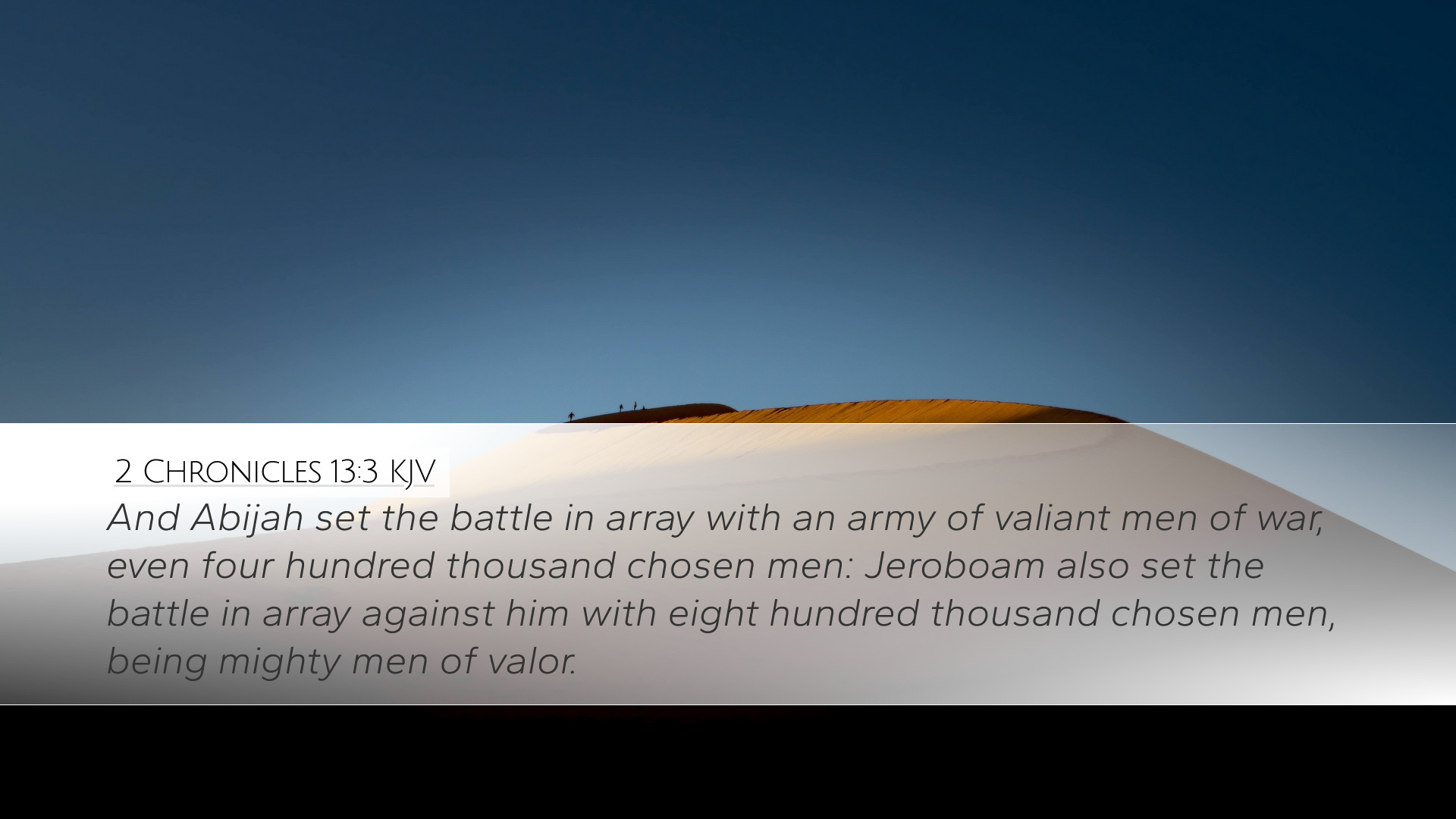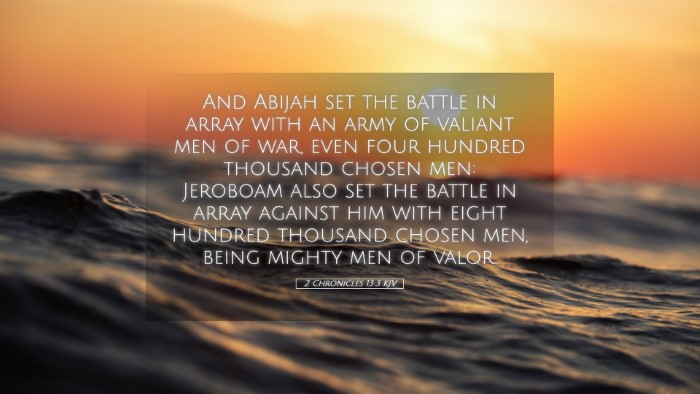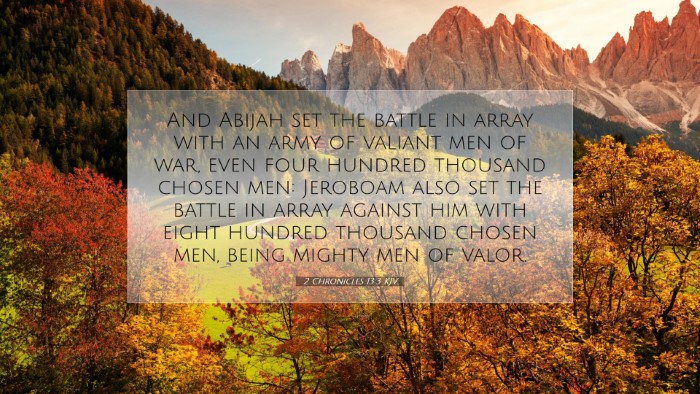Commentary on 2 Chronicles 13:3
Verse Reference: 2 Chronicles 13:3
This verse recounts the significant moment of conflict between King Abijah of Judah and King Jeroboam of Israel. Abijah's bold stand illustrates both the historical and theological implications of the divided kingdom of Israel.
Contextual Background
To fully understand the weight of 2 Chronicles 13:3, one must consider the context of the divided kingdom. Following Solomon's reign, the kingdom was split into two factions. Jeroboam ruled over the northern tribes, while Rehoboam's lineage remained in Judah. This division not only led to political strife but theological divergence, setting the stage for conflict.
Exposition of the Text
Abijah, the king of Judah, commenced battle with the army of Israel. This confrontation serves as a critical episode illustrating the ongoing struggle for power and the assertion of divine favor. The nature of warfare here symbolizes deeper spiritual conflicts and issues of fidelity to Yahweh.
Key Themes
- Leadership and Authority: Abijah demonstrates decisive military leadership, rallying an army of 400,000 men against Jeroboam's 800,000. The numbers reflect the overwhelming odds he faced, yet he stood firm in his assertion of rightful kingship.
- Divine Favor: The text implies that despite Abijah's numerical disadvantage, his claim to the Davidic covenant legitimized his leadership, showcasing that divine favor is not always aligned with worldly strength.
- Spiritual Warfare: The conflict serves as a metaphor for the spiritual battles faced by God's people. The emphasis is not merely on territorial gain but on adhering to God's covenant.
Insights from Commentaries
Matthew Henry
Henry highlights the importance of contextual faithfulness. He notes that Abijah called upon the covenant relationship established with David, expressing confidence that God would support his rightful role as king. This highlights the theological underpinnings of leadership based on divine election rather than mere political legitimacy.
Albert Barnes
Barnes emphasizes the significance of Abijah's actions and the pathos of the situation. Abijah's challenge to Jeroboam encapsulates the conflicting loyalties within Israel, where Abijah's invocation of total reliance on God stands juxtaposed against Jeroboam's idolatry. This contrast accentuates the reality that true power arises from faithfulness to the covenant.
Adam Clarke
Clarke provides a detailed analysis of the historical background, positioning Abijah's actions within the longer narrative of Israel's kings. He draws attention to Abijah's rhetorical approach, as he sought to remind Jeroboam of the consequences of his rebellion against the divine order. Clarke underscores the importance of memory in fidelity to God's command and covenant.
Application for Today
For modern readers, especially pastors and theologians, this passage prompts reflection on the nature of leadership and the importance of aligning political or personal ambitions with divine purposes. It raises questions about how faith is lived out in times of contention and whether leaders remain steadfast in claiming God’s promises.
Encouragement for Faithful Leadership
Abijah serves as a model for contemporary leadership characterized by integrity and reliance on God's authority. His example encourages leaders today to stand firm in their convictions, particularly when they encounter opposition. The reliance on history, memory, and the understanding of God’s covenant is integral to sustaining faith in modern ministry.
Reflection on Divine Favor
The tension between faith and worldly resources is evident in this account. Believers are reminded that success is defined by faithfulness to God rather than sheer numbers or power. God's favor may not always coincide with visible triumphs, but rather with deep allegiance to His word and ways.
Conclusion
2 Chronicles 13:3 not only recounts a historical moment but serves as a profound reminder of the spiritual battles that characterize the journey of God’s people. The insights from the commentaries indicate that divine assurance, historical context, and the pursuit of righteousness define true leadership. In a world often caught in conflict, the narrative of Abijah provides hope and encouragement to stand firm in faith and fidelity to God’s covenant.


